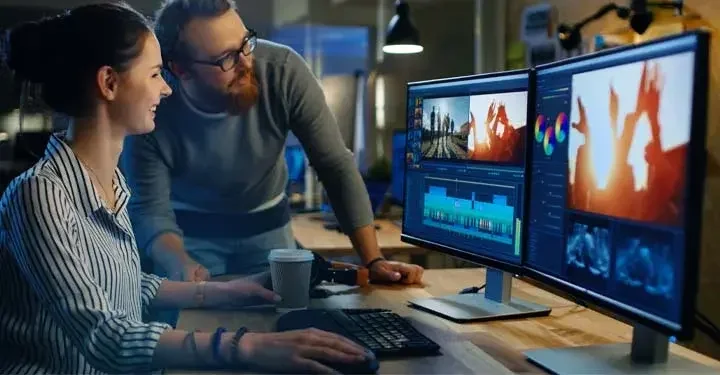Being a citizen of the 21st century means that you're likely a digital media creator, even if you don't think of yourself as such. If you've ever created a meme and shared it on Facebook, snapped a photo with your smartphone, or published an original video on YouTube, you have created digital media. Websites, music, books, art, blogs, video games, and mobile apps are also forms of digital media, all of which are protected by the Digital Millennium Copyright Act (DMCA).

Summary of the Digital Millennium Copyright Act
The 1998 enactment of the DMCA expanded existing copyright laws to include and address issues associated with the internet and digital media and to conform with the requirements of internationally ratified treaties and the World Intellectual Property Organization (WIPO), of which the U.S. is a member.
The five sections of the Digital Millennium Copyright Act can be paraphrased as follows:
Title I: Implements the WIPO treaties. This section serves two purposes. First, it amends U.S. copyright laws to incorporate the WIPO treaties, which are international law. Secondly, it makes it illegal to bypass any technology, such as digital rights management software, meant to protect copyrighted material. Using or selling technology that allows access to material in a way that violates copyright is also illegal. If you listened to music on your computer in the 1990s, you probably used or heard of Napster, which implemented technology that violated the copyright of every single artist whose song was downloaded and played for free. Title I made doing so illegal.
Title II: Limited liability for internet service providers. This section sets forth four criteria that, if met, protect an online service provider from having to pay damages in a copyright infringement lawsuit.
Title III: Computer maintenance or repair. Because reproducing a copyrighted work often constitutes infringement, allowances were made for special situations. This section allows someone who legally owns a copy of computer software to reinstall it as part of regular computer repair or maintenance. The allowance extends to a third party, such as a computer repair shop doing the work on behalf of the computer's owner. For example, if a virus infects your laptop, you can make a backup copy of your hard drive, with the intention to upload it again once the computer is fixed, as long as you legally own copies of all the software.
Title IV: Miscellaneous provisions. Covering various topics, this section confirms and clarifies the U.S. Copyright Office's authority to continue with its regular duties, grants an exception for radio broadcasters to make recordings as part of their transmissions, addresses distance-learning education, adds provisions for libraries that keep and use sound recordings, and adds provisions related to collective-bargaining agreements in motion pictures.
Title V: Vessel Hull Design Protection Act. This amends copyright laws to protect the design of boat hulls.
Penalties under the DMCA
The consequences of violating the DMCA include both civil and criminal penalties. A civil penalty involves paying damages, while a criminal penalty can include imprisonment and fines. Criminal charges are usually the result of willful infringement, meaning the infringement was committed on purpose and with intent. In a criminal case, violators can face up to five years in prison and up to $500,000 in fines.
The DMCA allows registered copyright owners to file an infringement lawsuit in federal court. If successful at trial, the copyright owner could receive both actual and statutory damages.
The DMCA addresses the concerns of the digital age that the U.S. Copyright Act of 1976 could not have foreseen. The democratization of publishing, facilitated by the internet and technologies such as mobile phones, necessitated additional protections that don't apply to more traditional forms of publishing. The DMCA is the response.

